Mass Flight Cancellations in China Sparks Speculation on Political Turmoil
Distressed Patriotic Flag Unisex T-Shirt - Celebrate Comfort and Country $11.29 USD Get it here>>

The recent widespread cancellations of domestic flights across China attracted international attention, leaving many wondering what the reason behind it could be.
Largescale flight cancellations have occurred before when major events have taken place at top levels of the Chinese Communist Party (CCP). Now the same situation appears to have happened again in the run-up to the CCP’s 20th National Congress (beginning Oct. 16), triggering international concern about unrest in Beijing’s highest political circles.
On the evening of Sept. 21, a screenshot showed airport display boards at various airports canceling a large number of flights across the country circulated on China’s social media. Many netizens discussed what might be the reason behind it.
According to the data netizens collected from different regions, as of 10:35 pm that evening, 9,583 flights were canceled in China, reaching a cancellation rate of 59.66 percent.
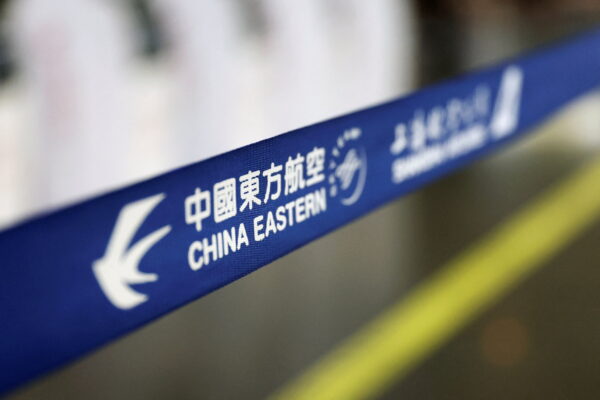
The cancellations were not only at busy air transport hubs of Beijing, Shanghai, and Shenzhen but also at three airports in the western provinces of China: there were 539 flights canceled at Longdongbao Airport in Guiyang, Guizhou Province, with a cancellation rate of 99 percent; 157 flights were canceled at Gongga Airport in Lhasa, Tibet, with a cancellation rate of 98 percent; and 752 flights were canceled at Tianfu Airport in Chengdu, Sichuan Province, with a cancellation rate of 87 percent.
In addition, the flight cancellation rates of Urumqi Diwobao Airport of Xinjiang, Tianjin Binhai Airport, Harbin’s Taiping Airport of Heilongjiang Province, and Chengdu’s Shuangliu Airport in Sichuan Province were all over 50 percent.
No Official Explanation
A Chinese netizen wrote: “I bet some major incident has happened. Otherwise, how could such a large number of flights get canceled during peaceful times!”
So far there has been no official explanation for the flight cancellations, but Chinese online media claimed that a high rate of flight cancellations has been a norm since the outbreak of COVID-19
On Sept. 21, the CCP held a seminar on national defense and military reform in Beijing. CCP leader and chairman of the Central Military Commission, Xi Jinping, requested that the military should “focus on war preparation,” but did not attend the meeting in person, according to a video released by China Central TV, the regime’s mouthpiece.
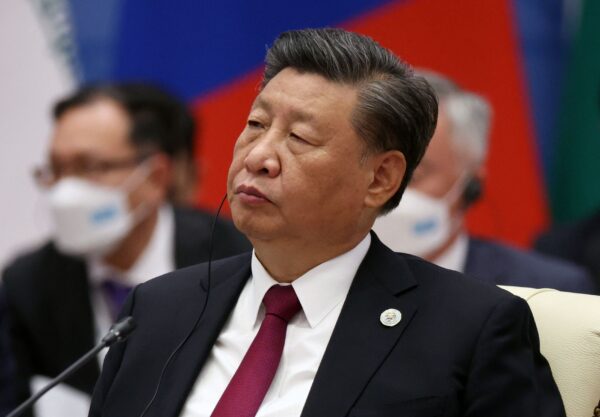
Chinese American commentator Chen Pokong said on his YouTube channel on Sept. 24 that it was unlikely that the flights were canceled due to the pandemic, and there was no sign of an immediate attack on Taiwan. Based on the fact that before the CCP’s 18th and 19th National Congresses, there had also been incidents of large-scale flight cancellations, he suspects that it was a result of political struggles.
Shenzhen Flights Canceled in 2020
On March 5, 2020, Chinese media reported that flights from Shenzhen to Beijing, Shanghai, Nanjing, Hangzhou, and other cities were canceled, and several flights from Guangzhou to Hangzhou were also canceled for “public safety reasons.”
At the time, there was a video circulating on the Chinese internet showing a military plane crash in Wuqing District, Tianjin on March 5 that year. Since Tianjin is adjacent to Beijing, the incident sparked a lot of speculation and was linked to the cancellation of flights. Some even suspect that it was a “repeat of the Lin Biao incident.”
The Chinese regime’s decision to suspend flights this time is very similar to the situation when former Party heavyweight Lin Biao attempted to flee to the Soviet Union, according to commentator Chen Pokong.
On Sept. 13, 1971, a plane crashed in Wendul Khan, Mongolia, killing all nine people on board. China’s central authorities said that Lin together with his wife and son, were victims of the deadly crash as they fled to the Soviet Union. Soon thereafter, the authorities stated that Lin had been planning a military coup to assassinate Mao.
Lin had a notable military career during the Chinese Civil War and later played an important role as Mao’s right-hand man after the CCP seized power in China. In April 1969, when the CCP’s 9th National Congress adopted a new Party constitution, it named Lin as Mao Zedong’s “intimate comrade-in-arms and successor.”
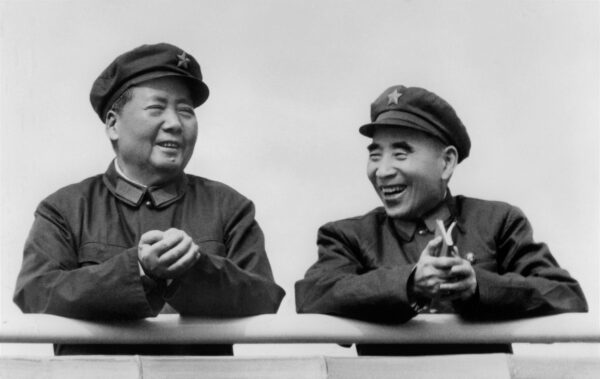
According to Chen, Mao and then Chinese Premier Zhou Enlai plotted to force Lin to escape.
“At the time of Lin’s fleeing, airports across China, including the lights, were shut down so that Lin’s plane had no place to land. His family had to fly north,” Chen said.
On Sept. 12, 1971, the day before the crash, the pilot who flew the airplane received orders to go to Beidaihe at around 6 p.m. Around 9:50 p.m., Lin’s daughter, who was a fanatical admirer of Mao and Zhou, reported to the CCP’s Central Committee that her parents and her brother were trying to leave China, and asked Zhou to stop them from boarding the plane. Zhou agreed and immediately reported to Mao.
According to a book published by the Chinese authorities recounting the incident, Zhou advised Mao to order a nationwide ban on flights. Moreover, army units were immediately stationed at airports, setting up barriers to prevent all aircraft from taking off, in the name of preventing air attacks and air landings from the Soviet Union.
The CCP kept silent on Lin’s death for more than a month and finally announced it on Oct. 24.
The reasons for Lin’s fleeing from China, as well as the plane crash that killed all onboard, have been obscured by the CCP for over 50 years and remain a mystery.
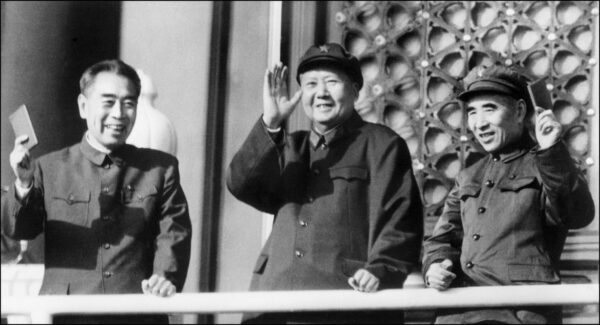
12 Airports Ordered to Suspend Operation to Seize Zhou Yongkang
In late July 2014, news spread on the Chinese Internet that 12 airports in East and Central China would experience delays for a period of 26 days, from July 20 to Aug. 15. Earlier on July 14, Shanghai already experienced serious flight delays.
A Chinese civil aviation insider later confirmed to Beijing News that the information was basically true, but it was not convenient for him to disclose the specific reasons. He only revealed that the delay would mainly affect flights in East China and the southeast coast.
On July 24, 2014, the Civil Aviation Administration of China (CAAC) said that the flight delays or temporary cancellations were due to a combination of factors, including thunderstorms and routine military drills.
At the end of July 2014, overseas Chinese media Boxun reported that the military drills and flight cancellations were related to the announcement of the prosecution of Zhou Yongkang, a former member of the CCP’s Politburo Standing Committee.
The article quoted sources as saying, “Because the announcement of such a big case is bound to cause a counterattack from Zhou Yongkang and his supporters, the military exercises are supposed to deter a possible military coup, while the cancellation of civil aviation is to prevent officials from fleeing.”
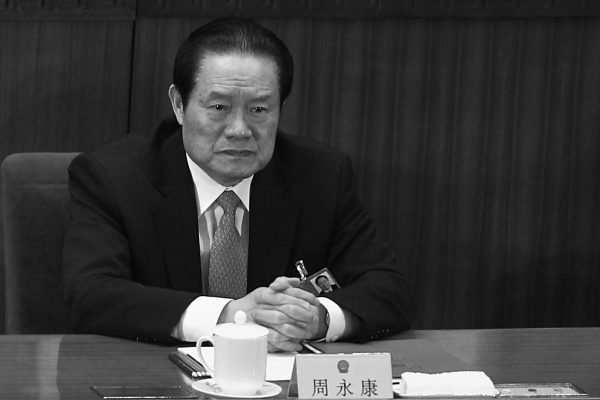
Hong Kong media Ming Pao also published an article in January of the following year, saying that the 12 airports were simultaneously ordered to suspend operations in order to catch Zhou, the “big tiger” who was trying to flee.
“Tiger” is a metaphor used in Xi Jinping’s anti-corruption campaign, to refer to high-ranking corrupt officials.
The article said that Zhou had been in control of the CCP’s political and public security system for many years and had a large number of minions throughout the system, which is a condition that other “tigers” do not have.
Chinese authorities announced that Zhou had been placed under investigation on July 29, 2014.
Zhou was sentenced to life in prison in 2015 for corruption charges and for “leaking state secrets”.





